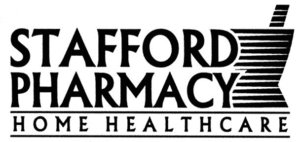Hypertension
What is hypertension?
Hypertension, also known as high blood pressure, is when the pressure in your blood vessels is higher than normal.
How do I know if I have hypertension?
The only way to know if you have hypertension is to measure your blood pressure regularly. This can be done by your doctor at regular visits, using a blood pressure monitor in a pharmacy, or at home if you purchase a home blood pressure monitor. Hypertension is known as the “silent killer” because most people with the disease have no symptoms. The disease usually comes on slowly overtime, producing no symptoms. Rarely, patients experiencing a rapid and extremely high blood pressure will suddenly develop severe headaches.
What do blood pressure numbers mean?
There are two numbers in a blood pressure reading. The highest number is the force of blood when your heart pumps, known as systolic BP. The lowest number, diastolic BP, is the pressure at its lowest when the heart is at rest. For most people blood pressure should be below 140/90. For those with diabetes or kidney disease blood pressure should be less than 130/80.
How common is hypertension?
Very common! 1 in 4 Canadians have hypertension.
Why is diagnosing and treating hypertension important?
Hypertension is the leading risk for premature death. Hypertension can cause the following if left untreated:
- Stroke
- Heart attack/heart failure
- Kidney failure
- Eye damage
- Dementia
- Sexual Dysfunction
- Early death
What causes hypertension?
Lifestyle is responsible for 60% of all cases of hypertension. Poor diet, lack of exercise, excess alcohol consumption, smoking and stress can all contribute to hypertension. About 35% of people have hypertension due to genetics. The remaining 5% are due to underlying kidney disease or excessive use of aspirin-like drugs (NSAIDS).
What can you do to prevent hypertension from developing?
- Eat a healthy diet (following Canada’s Food Guide is a great way to start)
- Exercise regularly (30-60 minutes per day at least 4 days per week)
- Maintain a healthy body weight
- Be smoke-free
- Limit alcohol consumption
- Control stress
Not only can a healthy lifestyle prevent hypertension from occurring, but changing your lifestyle once diagnosed with hypertension can help to reduce blood pressure substantially.
How is hypertension treated?
Controlling your blood pressure reduces your risk of dying, having a heart attack or stroke, having kidney failure or developing eye disease. If caught early, lifestyle modifications may be enough to reduce blood pressure. However, the majority of patients require one or more medications. There are many different types of medications that are used to control blood pressure. Treatment is a lifetime affair. Even when blood pressure is controlled, those with hypertension must live a healthy lifestyle and take their medications regularly.


